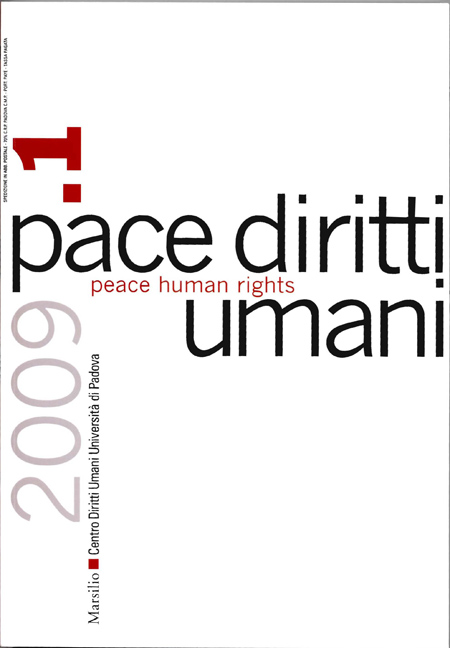Raccolte

Dalla Carta olimpica alla Dichiarazione universale dei diritti umani, 1894-1948
- Contenuto in
- Pace diritti umani - Peace Human Rights, 1/2009
- Tipologia pubblicazione
- Articolo / Saggio
- Pagine
- 123-133
- Lingua
- IT
From the Olympic Charter to the Universal Declaration of Human Rights, 1894-1948
In 1894 Pierre de Coubertin declared that Olimpism is a philosophy that seeks to create a way of life based on the joy of effort, the educational value of good example and respect for universal fundamental ethical principles.
For the first time sport was officially proposed at the service of human development, as a tool to realise a peaceful society and human dignity. Sixty years before the International Declaration on Human Rights, the Olympic Charter declared that any form of discrimination with regard to a country or a person on grounds of race, religion, politics, gender or otherwise is incompatible with belonging to the Olympic Movement.
Thanks to the stimulus and the structure of the Olympic Movement, sport has methodically worked trying to realise, in a not necessary and indispensable ambit of international relations, a universal message of peace, respect of human rights, brotherhood, drawing the attention on human rights and pressing for the intervention of most competent authorities.

